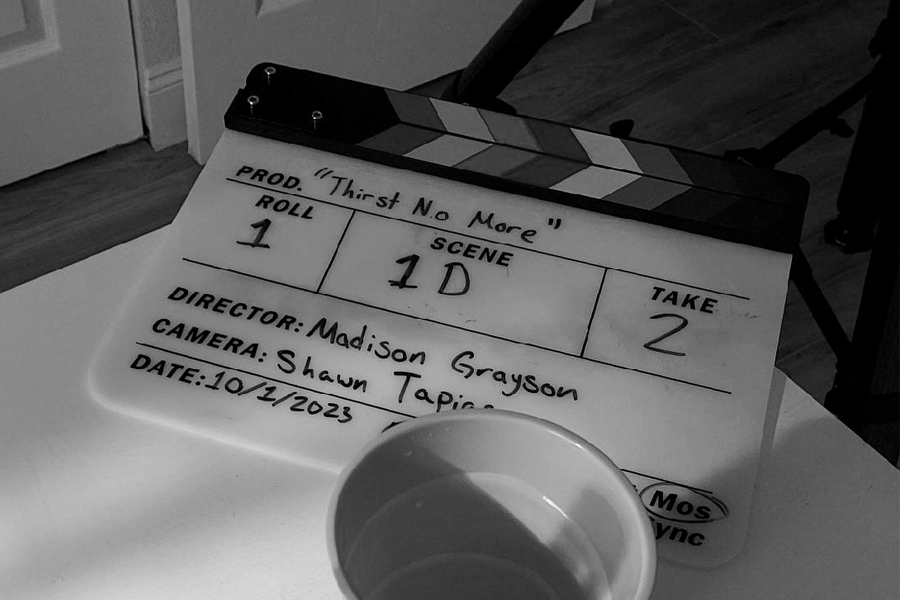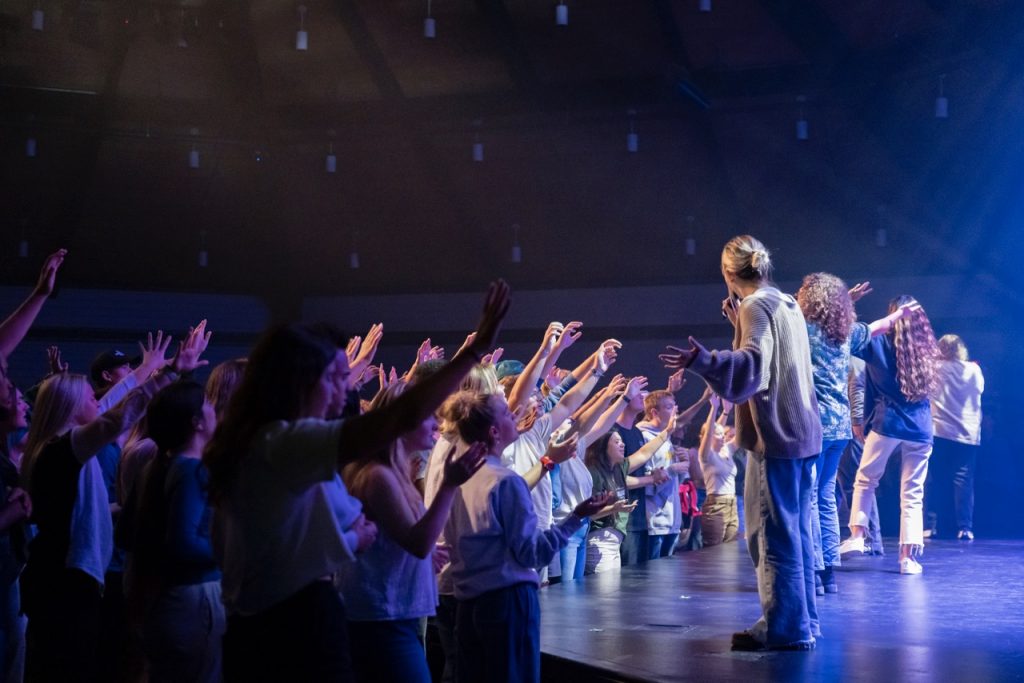All chatter and laughter cease as the lights begin to dim. The audience holds its breath in anticipation.
Suddenly, the sound of a projector whirring to life appears out of nowhere. The first scene of the film, so carefully crafted, unfolds before the captivated viewers’ eyes. All too quickly, the last image on the screen fades away into oblivion, and someone starts applauding. One by one, the other audience members stand up, and they all cheer, clap, or whistle.
These men and women are enraptured by the film they just watched, but none of them saw what went on behind the scenes to create it. They only witnessed the finished product, and not the story behind it, but that’s only because the tale of the capstone has not been told yet.
Getting Started
First day of freshman year, Southeastern University’s film production students are made aware of a final project they must complete prior to graduation. This project is a senior capstone film, and it’s what some film majors describe as the climax or big finale of their degree.
Over the next three years, these students take a variety of directing, editing, and screenwriting courses in preparation for their capstone project. Once they’ve acquired the technical and creative skills they need to create their own short films, SEU’s film seniors begin working on their capstones.
“One of the most important things a film student needs to know before tackling a big project like a capstone is the 15 beats of their capstone story,” says Sky Vernon, a film production student at SEU. “The 15 is a set of questions that helps you outline and build your capstone story.”
Story is King
A semester before they graduate, SEU’s film students meet weekly with Professor Christopher Clark, associate professor of film production, to work on revising and refining their capstone stories. “Story is king,” Clark often reminds them. He believes that an emphasis on storytelling is what sets these future professionals apart from others going into their field.
At the end of the semester, film seniors finish the first draft of their capstone script, and Professor Bethany Miller, associate professor of film, guides them through the next step of the filmmaking process. She goes through the scripts and makes a few small changes to them to make the stories more realistic to film.
After that’s done, the students put together a crew and start shooting. They typically get one weekend each to film their capstones, then comes the post-production phase, which can take up to several months.
The Showcase
Finally, SEU’s graduating seniors present their original capstone films to the public at an on-campus event known as the Senior Film Showcase. This showcase is the highlight of a film production student’s time at SEU.
“It’s why they’ve become a filmmaker. You’re not making your films for no one to watch. You’re making your films for some people to see,” says Clark.
Successful completion of this capstone project also provides film students with confidence as they enter their field upon graduation. Elisha Eaton, a film production student, explains, “It shows that you know what you’re doing, and that you’re ready to move on into the industry.”
Article by Emma Williams, SEU Communications Student
Photo by Victoria Casto, SEU Film Student
Learn More
Degrees in Communication, Arts & Design




